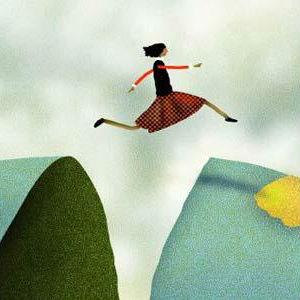Reading fiction is fun. It helps us escape, arouses us, entertains and educates us. But is it doing us any good?
Novelist and cultural theorist Kwame Anthony Appiah believes that imaginative literature can help us to be better people and help the world to be a better place.
The Ghanian-British thinker – whom Forbes magazine named one of the world’s seven most powerful thinkers in 2009 – argues that spending time in the world of the imagination helps us gain in an insight and understanding into other cultures that any amount of studying facts and figures cannot provide.
Recently in Australia for the Melbourne Writers Festival, Appiah is by definition, a global citizen. Born in London and raised in Ghana by a British Mother and Ghanaian father and now a United States resident, Appiah has impeccable British manners – as anyone who watched Monday night’s Q and A would attest to after witnessing him set next to the often confronting Germaine Greer.
In his address to Melbourne Writers Festival audiences Big Ideas: Alan Missen Oration: Literature and Global Citizenship Appiah drew on his complex background to advocate for storytelling.
‘My father told us that we should always remember that we were citizens of the world, and he used those exact words.’ His mother’s commitments to global citizenship; however, were more literary than philosophical and she wrote stories based on the Ashanti people of Ghana, where the family lived, in a bid to educate British and American children about a part of the world they may never visit. Here, you can see where the seeds of Appiah’s idea of imaginative literature as a global education force were sown.
Appiah argues that imaginative literature is important in helping to create global citizens: people who can understand the intricacies of foreign cultures and as a result understand the importance of ideas and freedom of expression.
This is the argument that Toni Morrison put forward when she accepted the Nobel prize for literature in 1993. “Word-work is sublime… because it is generative; it makes meaning that secures our difference, our human difference – the way in which we are like no other life. We die. That may be the meaning of life. But we do language. That may be the measure of our lives.”
The capacity of literature to make a difference is most striking in context when human rights is under threat, which is why novelists Milan Kundera was a greater threat to communist Czechoslovakia than any political revolutionary and why in the oppressive regime of Syria a celebrated novelist like Rafik Schami is an expatriate.
Kundera argues only the novel can break through the barriers of systemising the world and allow us to think in new ways, politically and personally. “Outside the novel, we’re in the realm of affirmation: everyone is sure of his statements: the politician, the philosopher, the concierge. Within the universe of the novel, however, no one affirms: it is the realm of play and of hypotheses. In the novel, then, reflection is essentially inquiring, hypothetical.”
Appiah, who is president of PEN International, believes literature can be essential in the struggle for free expression. Without the existence of literature, cultural interactions across societies would be more difficult to navigate and human rights activism harder to invigorate.
“One of the points that I think we don’t make frequently enough when we’re defending free expression is that limiting expression is terribly bad for government because a government that limits expression doesn’t actually know what people are thinking, it doesn’t know what’s going on in its own society – you can’t respond politically to the challenges of your own society if you don’t know what you’re own people are thinking,” he said.
Freedom of expression is not just empowering for writers but also for readers. While a small percentage of any public may be core consumers of literature those who do instigate a flow on effect to the rest of their society.
“The people who do this kind of reading are very often also the people who make the films and the television, who write the Op-Ed pages in the Newspapers, they’re an important section of our community they’re the literary engaged section of our community, and it’s an important part of our community, it’s part of the community that helps to shape how we think about our lives,” said Appiah.
Fiction takes us to places that news cannot. Appiah said that if one took all one knew about a society from the news, “it’d be all vast corruption cases and coups and murders and so on and all these things that are perfectly real, but, as I say, the news is about the big things it’s about, as they say in the old formula, it’s about the man biting the dog but most of the bites in the world are dogs biting men”.
Everyday stories of dogs biting men can be deeply moving and powerful in the hands of a novelist just as literary festivals make sure that the ideas and stories within imaginative literature thrive.
The results are not just in book sales and enjoyable leisure but also in better communities and a more informed global society.





